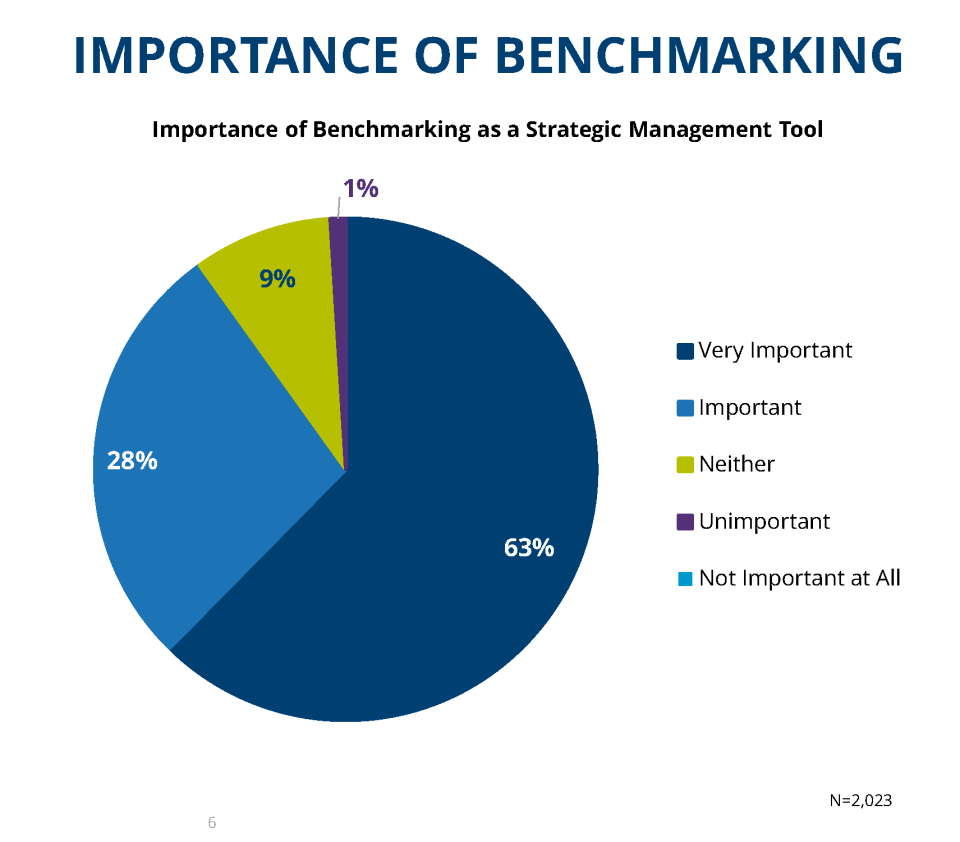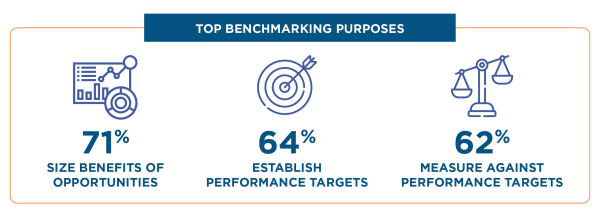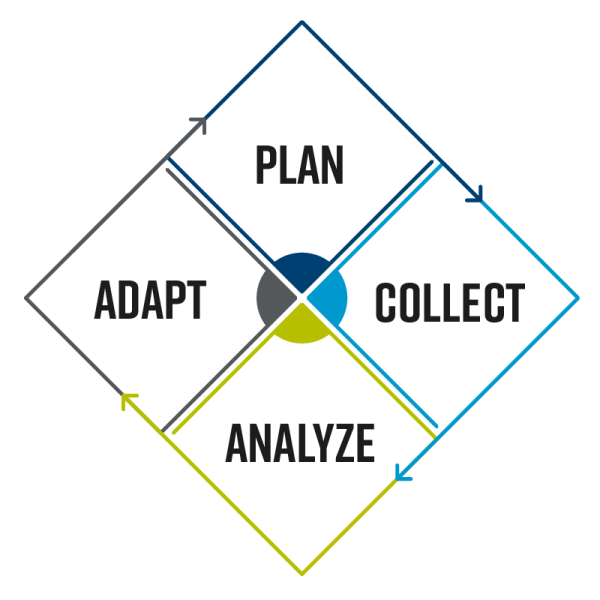
What is Benchmarking?
Benchmarking is an approach an organization uses to measure its internal processes and look externally to identify, understand, and adapt practices used by best-in-class organizations.
How well are your business functions performing? This seems like a simple enough question to answer, but it can become tricky without understanding what to compare your performance against.
This is where benchmarking provides context for decision-making and managing performance.
Why Benchmark?
Benchmarking done right can produce many benefits, from identifying improvement opportunities to driving change or transformation.
A joint APQC and the IBM Institute for Business Value survey revealed that an overwhelming majority of respondents view benchmarking as a very important tool for an organization’s strategic management.
Organizations benchmark for different purposes, generally deriving from a need to compare the performance of their products or processes. The primary purpose an organization may want to benchmark is to determine the potential size of the benefits of tackling an opportunity. Secondarily, most organizations also use benchmarking for various measurement practices: measure identification, goal setting, and comparative performance.
Top Benchmarking Benefits
Benchmarking allows organizations a unique opportunity to analyze and adapt successful practices, producing an array of benefits, including:
- Operational efficiency
- Reduced costs
- Employee engagement
- Customer satisfaction
- Agility from their use of benchmarking
Top Benchmarking Challenges
With all the significant advantages benchmarking provides, the question becomes, “Why don’t all organizations benchmark?” APQC surveyed over 2,000 global participants on the impact and importance benchmarking has on organizations’ ability to make important, informed decisions and identified these top challenges:
- Difficulty comparing an organization with best-practice organizations
- High cost of collecting, accessing, and applying relevant data
- Not enough relevant, timely, and reliable metrics
- Not enough common definitions or process framework
- Difficulty articulating the business value from benchmarking and not enough people with benchmarking experience
Explore additional survey highlights.
How to Benchmark?
One of the essential elements of a successful benchmarking program is following a rigorous process. Choosing an optimal benchmarking partner, then, requires a deep understanding of the process being studied and of the benchmarking process itself.
APQC uses a four-phased approach to benchmarking, including plan, collect, analyze, and adapt.
Ready to Start (or improve) your Benchmarking Journey?
Explore the main items needed to start a benchmarking initiative, including templates, tools, a glossary, APQC's Process Classification Framework®, APQC's Benchmarking Code of Conduct, and other articles that explain the steps required for successful benchmarking.
Access the Benchmarking Basics collection.


